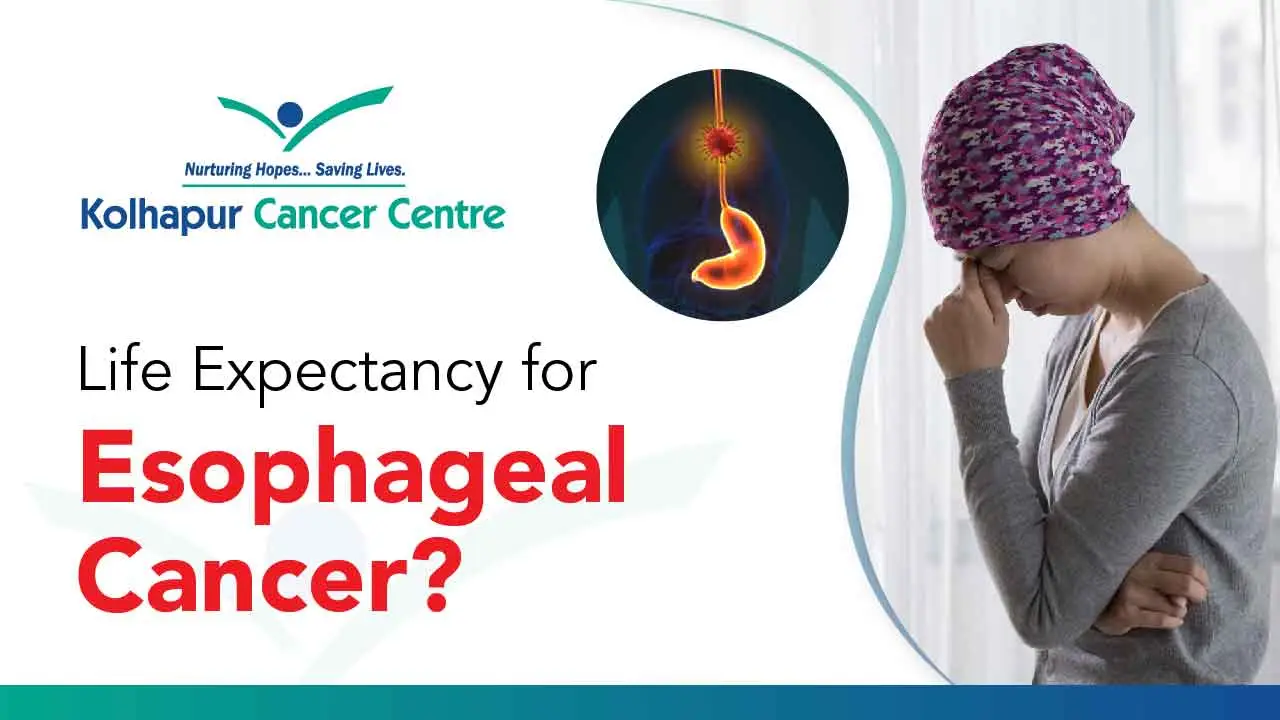What is the Life Expectancy for Esophageal Cancer? Insights for Cancer Patients

The Interplay of Life and Cancer: What is Life Expectancy in the Context of Cancer?
Life expectancy, in the context of cancer, refers to the predicted length of time an individual is expected to live from the point of diagnosis. However, it’s crucial to note that these statistical averages are not definitive timelines. They serve as a guide to potential outcomes, influenced by various treatment response and physical health aspects.
Deciphering the Factors That Shape Esophageal Cancer Life Expectancy
Esophageal cancer’s life expectancy is shaped by a multitude of interdependent factors. Understanding these elements can provide clarity and empower patients to make informed decisions.
Cancer Stage: The stage of esophageal cancer at diagnosis is a chief determinant of life expectancy. Generally, the earlier the cancer is detected, the better the outlook.
Cancer Type: There are two primary types of esophageal cancer – squamous cell carcinoma and adenocarcinoma. While statistical data shows that adenocarcinoma has a slightly better prognosis, personalized cancer treatment & care is essential for a true understanding of each patient’s case.
Metastasis: The presence of metastases (spread) to distant organs significantly impacts life expectancy. Metastatic cancer is much harder to treat, and the focus often shifts towards palliative care.
Patient Health: The overall health and fitness of a patient before and during treatment can affect their ability to withstand aggressive treatment and affect their quality of life.
Treatment Response: The effectiveness of treatment – whether it’s surgery, chemotherapy, radiation therapy, or a combination – can vary widely between individuals, consequently shaping life expectancy.
Understanding Esophageal Cancer Survival Rates
Before fearing the worst, it’s important to arm oneself with knowledge. Survival rates provide a statistical perspective on the outlook for a certain cancer type and stage. For esophageal cancer, the five-year survival rate is around 20%, but this can vary based on the localized, regional, and distant spread of cancer.
Life Expectancy in Esophageal Cancer Stages
For localized esophageal cancer (confined to the esophagus), the five-year survival rate is about 47%.
This figure drops to around 25% for regional-stage cancers (spread to nearby lymph nodes)
Metastatic Esophageal Cancer: When esophageal cancer has spread to other organs, the median survival rate is a mere eight months, with a five-year survival rate below 5%.
Additional Factors Influencing Life Expectancy
Beyond the broad statistics, several factors can influence an individual’s prognosis:
- Age at diagnosis: Younger patients tend to have a better outcome.
- Tumor Grade: Higher grade tumors are more aggressive and have a worse prognosis.
- Other Health Conditions: Pre-existing chronic diseases or conditions can complicate treatment and affect the course of esophageal cancer.
- Lifestyle Factors: Diet, exercise, and overall healthy lifestyle choices can impact the progression of the disease.
Improving Your Life Expectancy with Esophageal Cancer
A diagnosis of esophageal cancer is not a conclusive sentence. There are proactive steps and treatment options that can potentially extend life expectancy.
Treatment Advances
Medical science is continually advancing, offering innovative treatments and therapies that can prolong life for esophageal cancer patients.
Palliative Care
While it may seem counterintuitive, palliative care can improve quality of life and even extend survival, by focusing on symptom management and the patient’s overall well-being.
Alternative Medicines
Complementary and alternative therapies, used in conjunction with conventional treatments, can help alleviate side effects and contribute to an enhanced treatment experience.
Lifestyle Modifications
Simple acts, such as quitting smoking, adopting a healthier diet, and increasing physical activity, can have a positive impact on one’s prognosis.
Life Expectancy Without Esophageal Cancer Treatment
This progression can lead to complications that are not only difficult to manage but can also hasten the decline in health. Consequently, opting out of treatment typically results in a substantial reduction in both quality of life and overall survival time.
Furthermore, without treatment, there is a higher likelihood of experiencing more severe symptoms, such as difficulty swallowing and weight loss, which can significantly impact daily life. It is also important to note that the longer esophageal cancer goes untreated, the more challenging it becomes to treat effectively.
The Role of Early Detection
Moreover, early detection allows for a wider range of treatment options and potentially less invasive or aggressive treatments. This not only increases the chances of survival but also improves quality of life during and after treatment.
The Importance of Timely Treatment
Starting treatment as soon as possible can help prevent the cancer from spreading to other parts of the body and increase the chances of successful treatment. Additionally, timely treatment can reduce the risk of complications and side effects associated with advanced stages of esophageal cancer.
In conclusion, tackling esophageal cancer effectively hinges on two critical components: early detection and prompt treatment. The importance of regular screenings cannot be overstated, particularly for those at an elevated risk of developing this type of cancer.
By diagnosing the condition early, individuals are presented with a broader spectrum of treatment possibilities, which can lead to more favourable outcomes and a better quality of life post-treatment.
Awareness around the symptoms and risks associated with esophageal cancer must be heightened, encouraging individuals to seek timely medical advice and intervention. Through these concerted efforts, we can significantly enhance survival rates and improve the lives of those affected by esophageal cancer.
Cancer Care at KCC, Kolhapur
In esophageal cancer treatment, decoding life expectancy is just one piece of the puzzle. By integrating the knowledge and insights from this guide, cancer patients are better equipped to make informed decisions.
If you or someone you care about is facing esophageal cancer, you do not have to travel this path alone. Contact a specialist at the KCC Cancer Hospital to discuss personalized cancer treatment plans and get the support you need for each step of the way. The road ahead may be daunting, but with the right information and the support of KCC, the ability to defy the statistics and define your health trajectory is within reach.
Previous article
Next article

